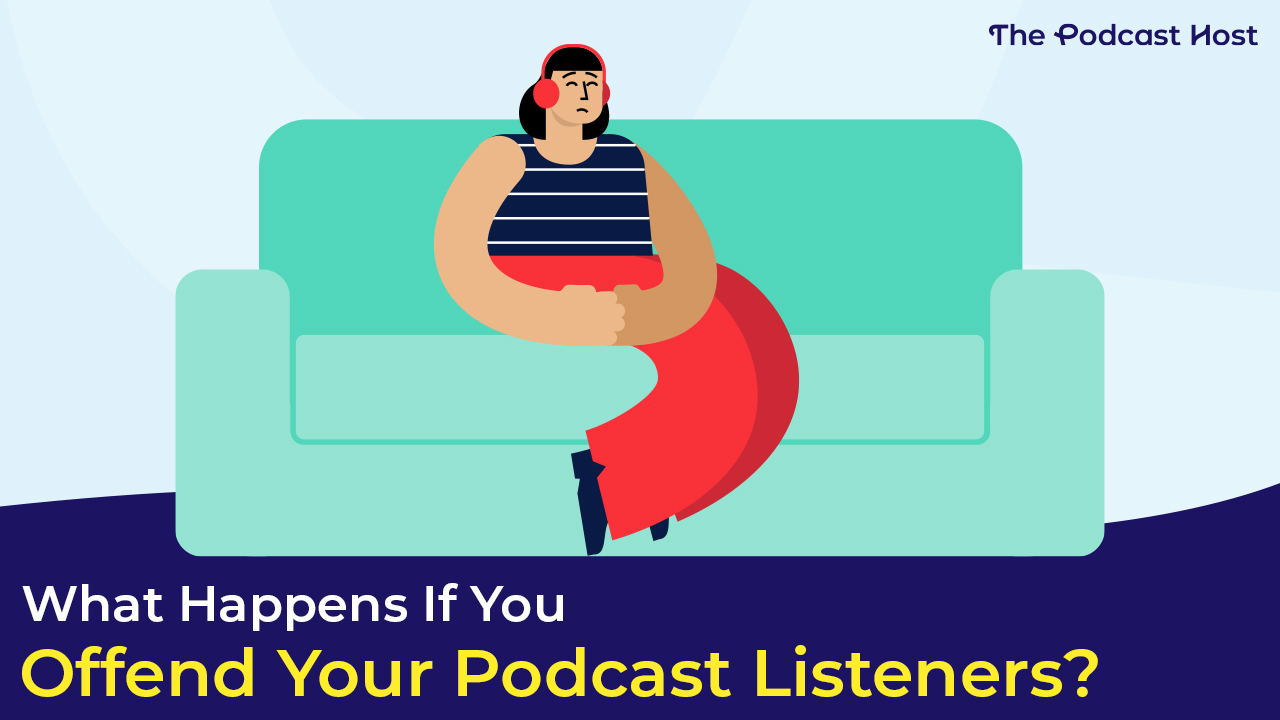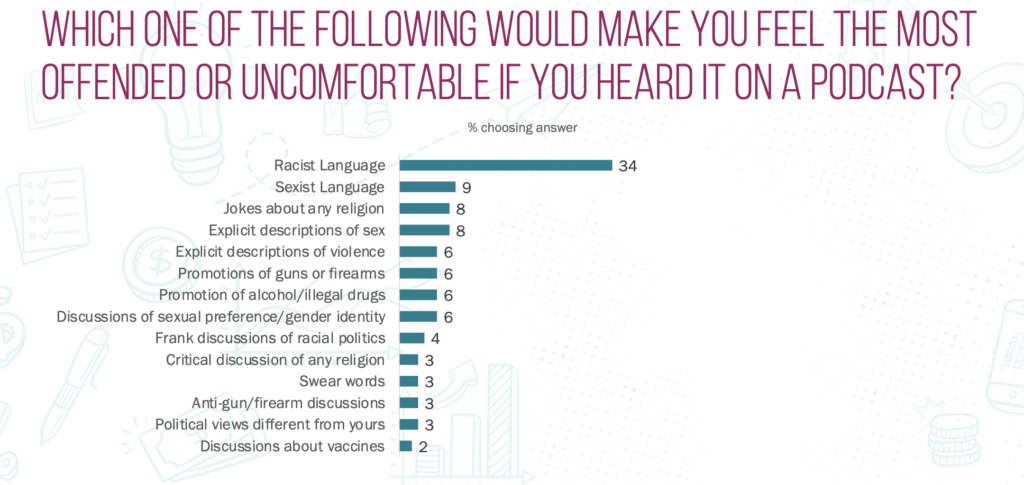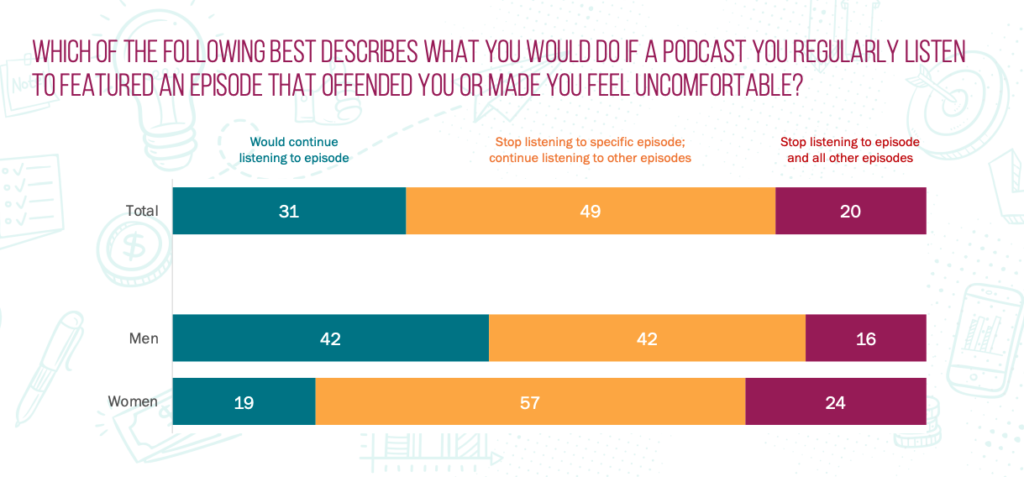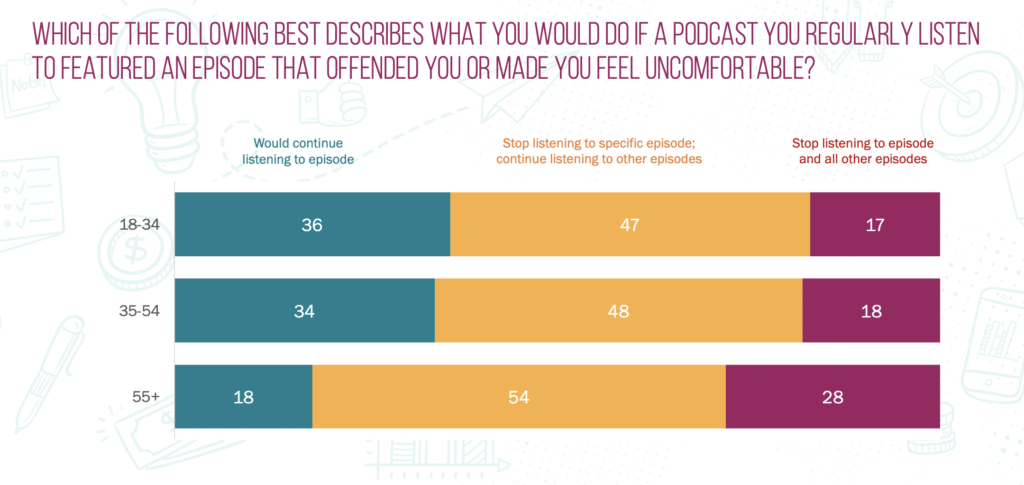What Happens If You Offend Your Podcast Listeners?

When you think of the word “controversy” in podcasting, your mind might immediately jump to someone high-profile like Joe Rogan or Ben Shapiro.
But as an independent podcaster, have you ever thought about what might happen if you offend your listeners, say something that they take issue with, or strongly disagree with?
Sounds Profitable have just released the results of a study called ‘Safe and Sound‘ that has some insights into how listeners respond to offensive content.
The research looks primarily at brand safety and suitability issues in podcasting. But as the study is based entirely on podcast listener opinion, there’s lots of insight in there for creators too.
More than 1,000 active podcast listeners took part in the study. We’ve pulled together some of the main highlights that podcasters might want to know about.
Examples of Content Podcast Listeners Find Offensive
Racist language was repeatedly cited in the report as the most offensive content for podcast listeners. When asked to choose from a list of 14 examples, 34% of listeners said racist content was the most offensive.
Sexist language came in second on the list. But as you can see from the graphic below, this involved substantially fewer respondents, at just 9%. The next most offensive categories were ‘jokes about any religion’ and ‘explicit descriptions of sex’. 8% of respondents found those the most offensive examples on the list.

Offensive Content vs Content You Disagree With
As a side note, there’s also an interesting discussion to be had here about the difference between offensive content and content you just don’t agree with. It’s not uncommon to conflate the two, and the study itself does this.
Racist and sexist language is objectively offensive because it involves prejudice and biases. But these examples are included in the same list as ‘political views that are different from your own’ and ‘frank discussions of racial politics’.
Can these really be considered examples of offensive content when they’re a matter of opinion and debate?
It’s interesting that some study respondents choose these examples as the most offensive content on the list.
Will Listeners Come Back if You Offend Them?
According to the data, podcast listeners are generally quite tolerant of controversial or unsettling content. Only 23% of listeners said they’d stop listening to a podcast entirely if they found the content offensive.
However, there does seem to be a gender and age divide on the impact of offending your listeners. According to the data, men are much more likely to continue listening to a podcast episode if they hear something they find offensive than women (42% vs 19% of women).

Listeners aged 55+ are also apparently more sensitive to offensive content. 28% said they would stop listening to a podcast completely that they listen to regularly if they heard something offensive. Only 17% of under-35s said this would put them off a podcast entirely.

What Can Podcasters Gain From This Data?
There are a few things we can take from this report that serve as a reminder of how to keep your listeners happy.
Know Your Audience
For one thing, this is a reminder of how important it is to take the time to dig into your listener demographics and psychographics. The more you know about who your audience is, the better you can serve them, and the quicker you’ll grow as a result.
If you have an older audience, the report suggests they may be less tolerant of situations where you offend them. In that case, it would be in your interest to err on the side of caution with your content. Younger audiences, on the other hand, are apparently more forgiving.
Then that brings us to our next important takeaway…
Stay On-Topic
If you run a podcast about, say, gardening, cooking or passive income, is there any need to be discussing something completely off-topic (politics, for example) that may alienate some listeners?
Your audience comes to you for a specific type of content, so try to stick to what you offer. If you want to regularly offer an opinion on politics, or anything else that’s potentially divisive, then maybe that’s a hint that you need to start a new podcast around that topic.
And, if your existing podcast is about something that divides opinion, it’s likely your listeners will go in prepared to be unsettled or disagree with your content. Podcasters with strong opinions on divisive topics will often make peace with the fact that they can’t please everyone – nor do they try to.
Read the full ‘Safe and Sound‘ study report by Sounds Profitable.
